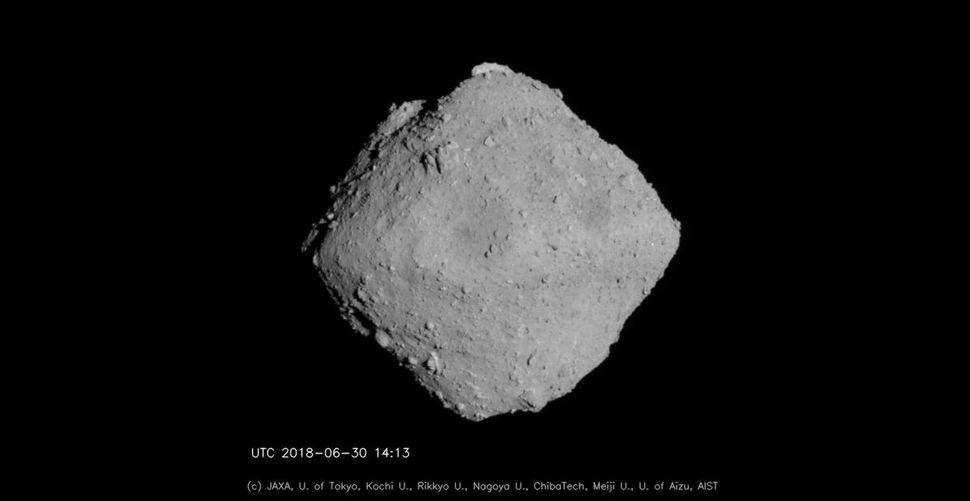Asteroid Ryugu contains dust older than the solar system
By Tereza Pultarova published about 15 hours ago
Separate research suggests the space rock formed in the outer solar system.

The asteroid Ryugu, as seen by Japan's Hayabusa2 spacecraft on June 30, 2018. (Image credit: JAXA, University of Tokyo, Kochi University, Rikkyo University, Nagoya University, Chiba Institute of Technology, Meiji University, University of Aizu and AIST.)
Ancient grains of dust that are older than the solar system itself have been found in samples from asteroid Ryugu brought to Earth by the Japanese Hayabusa2 spacecraft nearly two years ago.
The presence of this pre-solar material in Ryugu is not a surprise, as similar ancient grains were previously found in several carbonaceous chondrite meteorites, which are carbon-rich pieces of space rocks that survived the fall through Earth's atmosphere to land on the planet.
The ancient particles in samples from Ryugu are made of silicon carbide, a chemical compound that doesn't naturally occur on Earth. According to the researchers behind the new study, there are different kinds of silicon carbide grains that differ by what scientists call their isotopic signatures, or the number of neutrons in the core of the silicon and carbon atoms that make up the compound.
In the Ryugu samples, researchers detected the previously known types of silicon carbide but also an extremely rare form of silicate that is easily destroyed by chemical processes that take place in asteroids. The material was found "in a less-chemically-altered fragment that likely shielded it from such activity," the researchers said in a statement.
More:
https://www.space.com/asteroid-ryugu-dust-older-than-solar-system
